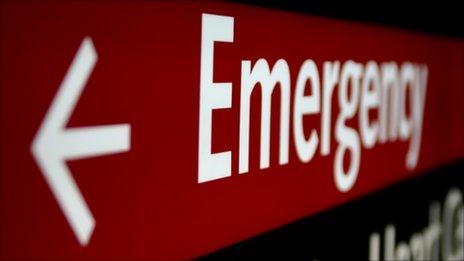18,000 physical attacks on hospital staff in Wales
- Published
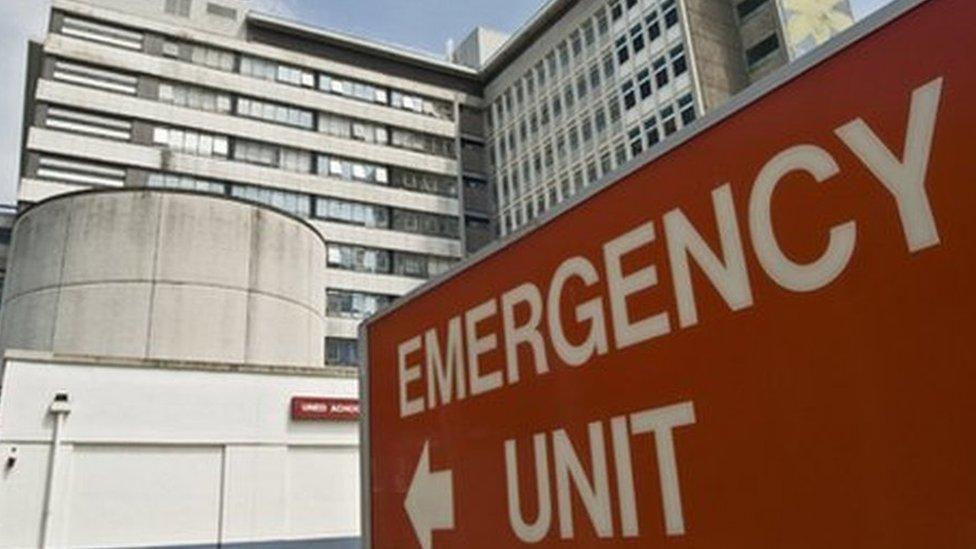
Cardiff's University Hospital of Wales has the busiest Welsh A&E unit
Hospital staff in Wales were physically attacked more than 18,000 times while at work, figures for the last five years have revealed.
The Freedom of Information data showed there were also 11,000 verbal assaults.
But, by comparison, there were fewer than 4,000 physical and verbal attacks on all other emergency service workers combined over the same period.
Groups representing doctors and nurses said the figures were unacceptable and a matter of concern.
Peter Meredith-Smith, associate director for employment relations at Royal College of Nursing in Wales (RCN), said: "The issue of aggression towards frontline NHS staff is longstanding.
"It may not necessarily mean its getting worse, it may be the reaction of the system is getting better, it may be the reporting is better, staff are being supported more to report these issues and address them.
"But it's clearly a matter of concern that frontline clinical staff are being subjected to this sort of behaviour on a regular basis."

'I don't come to work to be abused'
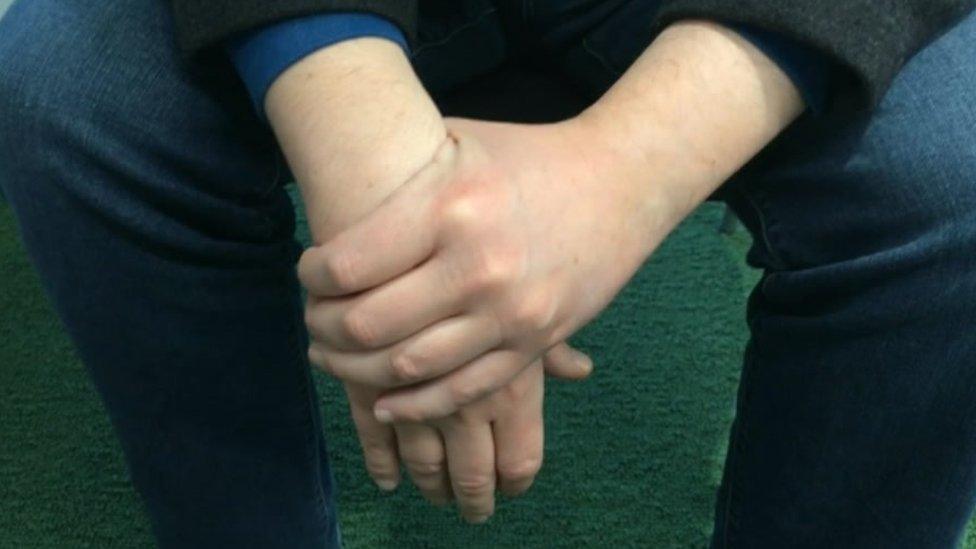
A nurse working in a south Wales emergency department, who was throttled by a patient, believes more needs to be done.
"I have been threatened a couple of times," said the nurse, who did not want to be identified.
"We know if the police are attacked, then it's zero tolerance, there is automatic prosecution.
"The posters go up saying 'zero tolerance' but I don't think there is. I think there has to be a concerted effort across the health boards across Wales.
"It can happen on a weekly basis, it can happen on a daily basis, it varies.
"I don't come to work to be abused, I come to work to care for the patients - the sick and ill."

Peter Meredith-Smith believes improvements are being made
Mr Meredith-Smith said there was a joint memorandum of understanding in place with the Welsh Government, Association of Chief Police Officers and NHS on how to help frontline staff and to deal with perpetrators.
He said there was evidence of improvements in protecting staff, but accepted there was "always more to do".
But Dr Phil Banfield, chairman of the BMA said the figures needed to be put into context.
"The misuse of alcohol has a significant impact on violence within emergency departments and it is clear that more needs to be done, outside of medical settings, to reduce rates of alcohol abuse," he said.
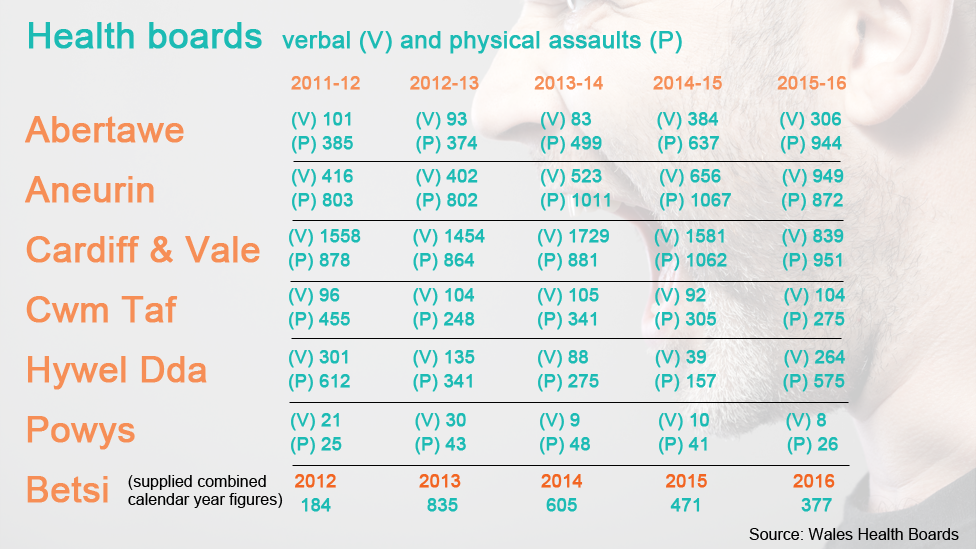
Dr Banfield added: "Additionally, assaults can occur when treating frail, older dementia patients or in those with severe mental health conditions.
"These incidents may be attributed to these patients being inappropriately admitted to acute settings because of bed shortages and gaps in social care provision, aggravated by staff shortages and resource shortfall."
He said: "We must move away from only blaming patients and look again at how the health and social care system may contribute to the reasons behind why assaults occur."
The Welsh Government said "significant progress" has been made to encourage reporting incidents so prosecutions can be brought as attacks "will not be tolerated".

Health boards' reaction
All health boards said staff are encouraged to report assaults and had received appropriate training.
Abertawe Bro Morgannwg University Health Board said, unlike other health boards, it provides forensic mental health services for south Wales, along with regional learning disabilities services and have patients with "behaviours or conditions which can result in increased episodes of violence or aggression"
Aneurin Bevan University Health Board said as well as working with the police, a marketing campaign is taking place "to educate the public that abuse to staff is not acceptable"
Betsi Cadwaladr University Health Board said a "significant number" of incidents were not gratuitous and can come following anaesthesia or when suffering "an acute episode of a chronic illness"
Cwm Taf University Health Board said a "very high proportion" of the incidents involved patients with a medical or mental health condition but it added that it is working with the police to address malicious violence and had "taken forward a number of prosecutions" in the last few months
Hywel Dda University Health Board noted an improvement in figures since 2013/14 and said it encourages staff to report violence so prosecutions can be pursued if appropriate
Powys Teaching Health Board recognised services such as A&E and mental health services are provided by neighbouring areas resulting in lower figures but said the majority of physical assaults it recorded were "unintentional acts by patients who may be vulnerable, confused or agitated"
Cardiff and Vale University Health Board did not provide a response
- Published19 July 2016
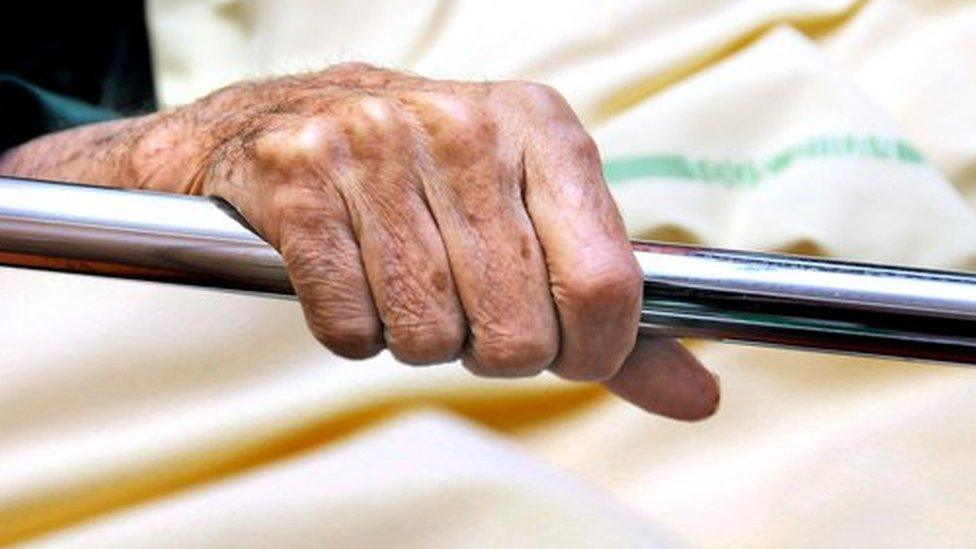
- Published16 February 2015
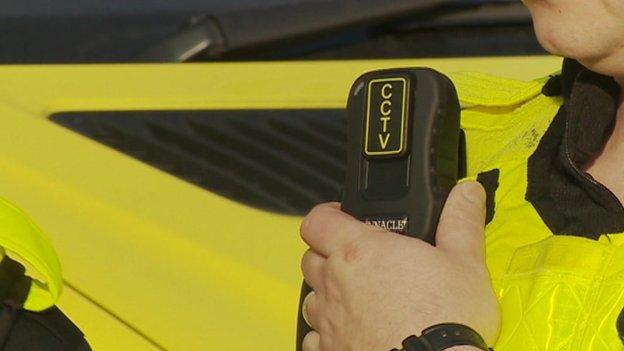
- Published10 June 2011
